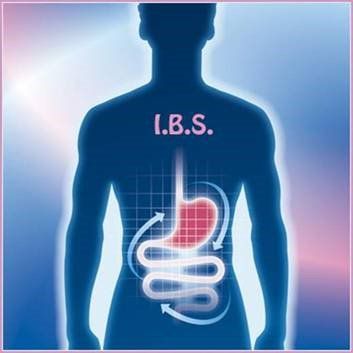This is an automatically translated article.
Fear and anxiety are among the most powerful emotions. This condition has a significant impact on the mental, physical and life of the patient. Fear and anxiety can last for a short time and can go away on its own, but if this condition lasts longer, the patient needs to go to medical facilities to examine and find the cause to control the fear. fear, avoid dangerous complications.
1. How do fear and anxiety affect you?
Fear is one of the most powerful emotions. It has a very strong effect on your mind and body. Fear can create powerful response signals when we have an emergency. For example, if we have a fire or are under attack. Fear can also occur when you are faced with non-dangerous events, such as an exam, public speaking, a new job, a date, or even a party. It is a natural response to a perceived or real threat.
Anxiety is the word we use for certain types of fear that usually involve thinking about a threat or something wrong in the future, rather than right now. Fears and worries can last for a short time and then pass, but they can also last longer, and you can get stuck with them. In some cases, they can invade your life, affecting your ability to eat, sleep, concentrate, walk, enjoy life, even get out of the house or go to work or school. This can hold you back from doing the things you want or need to do, and it also affects your overall health.
Some people become overwhelmed by fear and want to avoid situations that might cause them fear or anxiety. It can be difficult to break this cycle, but there are many ways to do it. You can learn to control your fear and face it so that it doesn't affect your life.
MORE: 4 exercises to help reduce anxiety
2. What causes anxiety and fear?
A lot of things make us feel scared, for example fire, how to keep you safe. Fear of failure can keep you from doing well so you don't fail, but it can also stop you from doing well if the feeling is too strong. What each person is afraid of and how they act when they are afraid can be different. Just knowing what scares you and why can be the first step in sorting out the problem with fear.
Because anxiety is a type of fear, the things described above about fear also apply to anxiety. The word anxiety tends to be used to describe anxiety, or when the fear is persistent and persists over time. It is used when the fear is about something in the future rather than what is happening right now. Anxiety is a word commonly used by medical professionals when they describe persistent fear. The way you feel when you're scared and anxious is very similar, because the underlying emotions are the same.
People initially need the quick and strong reactions that fear causes, because they are often in situations of physical danger. However, we no longer face the same threats in modern life. Even so, the mind and body still function in the same way as our early ancestors and have the same responses to modern worries about bills, travel, and social situations. However, we cannot run away or physically attack these problems.
Feelings of physical fear in itself can be very scary, especially if you are experiencing them without knowing why or if they seem out of place for the situation. Instead of alerting you to a danger and preparing you for it, fear or anxiety can trigger any perceived threat, be it imaginary or minor.

Bạn cần phải đối diện với sự sợ hãi và tìm ra nguyên nhân
3. How does fear and anxiety feel?
When you feel phobia or anxiety with a serious condition, your mind and body work very quickly and some symptoms occur such as:
Heart beats very fast, it may feel abnormal Breathing very fast Muscles feel weak Sweating a lot Stomach feels upset or bowels feel loose You find it hard to concentrate on anything else Dizziness You feel frozen in place Unable to eat You have a cold hot and cold sweats Dry mouth Very tight muscles These happen because the body senses fear and is preparing for an emergency, thus allowing blood to flow to the muscles, increasing the amount of blood sugar and gives you the mental ability to focus on what your body sees as a threat.
With anxiety, you may have some of the above symptoms in the long run as well as a more persistent feeling of fear. In addition, you may be irritable, have trouble sleeping, have headaches, or have trouble continuing with work and planning for the future. Besides, you may also have difficulty having sex and lose confidence.
MORE: Origins of Panic Disorder
4. How to overcome fear and anxiety?
4.1 Control your behavior and face your fears Fear can be a one-time feeling when you are faced with something unfamiliar. However, it can also be a daily, persistent problem even if you can't figure out why. Some people feel anxious all the time without any particular trigger. There are many factors that trigger fear in everyday life, and it is not always possible to figure out exactly why you feel fear and anxiety, or how likely you are to be harmed like that. any. Even when you can see how unusual fear is, the emotional part of the brain continues to send danger signals to the body.
In addition, you can also overcome fear and anxiety on your own by facing your fear. If you always avoid these situations, you can stop doing the things you want or need to do. Besides, you won't be able to check to see if the situation is always going to be as bad as expected, so you'll miss out on the opportunity to figure out how to manage your fear and reduce your anxiety. Anxiety problems tend to increase if you fall into this category. Exposing your fear can be an effective way to overcome this anxiety.
Try to learn more about your fear or anxiety. You can keep a worry journal or a thought journal to record when it happens and what happens. Try setting yourself small, achievable goals to face your fears. You can carry with you a list of items that can help when you are scared or anxious. This can be an effective way to address the underlying beliefs behind anxiety.

Đối mặt với nỗi sợ hãi bằng cách tìm hiểu thêm về nỗi sợ hãi của bản thân
4.2 Treatments for Fear and Anxiety Fear and anxiety can affect us all. Only when it's severe and persistent do doctors classify it as a mental illness problem. If you feel anxious continuously for several weeks, or if it feels like fear is taking over your life, you should seek medical attention. Interventions to help people overcome fear and anxiety include:
Talk therapy: Talk therapies such as counseling or cognitive behavioral therapy are very effective for people with problems about anxiety, including computer cognitive behavioral therapy, takes you through a series of on-screen self-help exercises. Medication: Drug treatments are used to provide short-term help, rather than looking at the root of anxiety problems. Medications may be most helpful when they are combined with other treatments or support. Support groups: You can learn a lot about managing anxiety by asking people who have been through it. Local support groups or self-help groups bring together people with similar experiences so they can hear each other's stories, share tips, and encourage each other to try new ways to manage themselves. Your doctor, library or local Citizens Advice office will have detailed information about support groups near you. Besides, maintain a healthy lifestyle to limit unnecessary thoughts. Some combined measures to help improve fear and anxiety include:
Exercise: Exercise requires concentration and this can help clear your mind of fear and anxiety. Relaxation: Learning relaxation techniques can help you eliminate feelings of mental and physical fear. Simply dropping your shoulders and taking deep breaths can help. In addition, you can also try to learn yoga, meditation, and massage exercises. Eat healthy: You should maintain a strong diet with lots of fruits and vegetables, but avoid eating too much sugar. Low blood sugar can make you feel anxious. Also, you need to avoid drinking too much tea and coffee, because caffeine can increase anxiety levels. Avoid alcohol or drink in moderation: People often drink when they feel anxious, but the consequences of alcohol can make you feel more fearful or anxious. Complementary therapy: Some people find that complementary therapies or exercises, such as relaxation techniques, meditation, or yoga, help them deal with anxiety. Faith/Spiritual: If you are religious or spiritual, this can give you a feeling of being connected to something bigger than yourself. Faith can provide a way to cope with everyday stress, and attending church and other faith groups can help connect you to a valuable support network nearby.
In short, fear and anxiety significantly affect the mental health, physical health and life of the patient. The condition may go away on its own, but it can even persist and get worse. Therefore, if you feel that fear and anxiety cannot be stopped, immediately go to a medical facility for advice, find out the cause and have timely intervention.
Please dial HOTLINE for more information or register for an appointment HERE. Download MyVinmec app to make appointments faster and to manage your bookings easily.
Reference source: mentalhealth.org.uk












